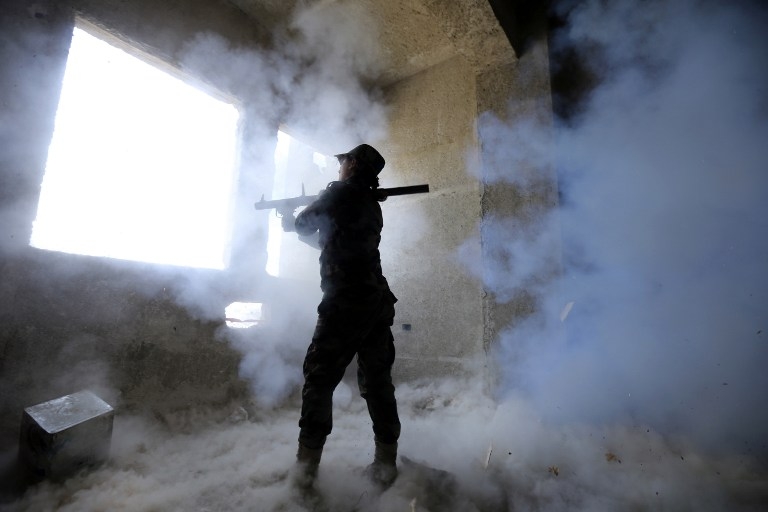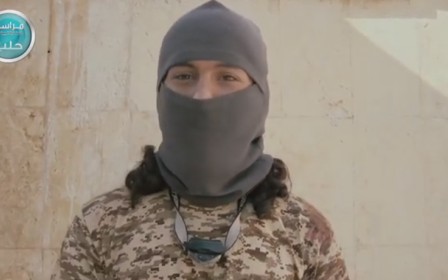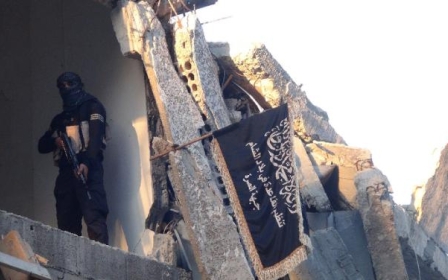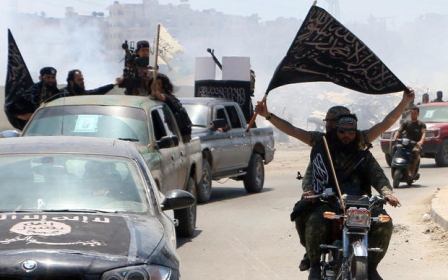US to defend Syrian rebels with airstrikes: Reports

The US will use airstrikes to defend US-trained Syrian rebels from any attackers, even forces loyal to Syrian President Bashar al-Assad, US officials told reporters on Sunday.
The decision, first reported by the Wall Street Journal, comes days after rebels from the Free Syrian Army's (FSA) Division 30, an infantry unit, thought to be trained in a new US programme, were kidnapped by al-Nusra Front, the al-Qaeda affiliate in Syria.
A day after the kidnapping, the US reportedly launched airstrikes against al-Nusra as the group attacked Division 30's headquarters, giving cover to the FSA rebels who fled.
The US "arm and train" progamme in Syria, which launched in May and has reportedly only trained about 60 candidates, aims to prepare rebels fighting the Islamic State group (IS), but US-trained rebels say they have been instructed not to use their new weapons and expertise to fight Assad. The US has sought to avoid direct confrontation with Syria's leader.
Using airpower to protect rebels against Assad's forces and allies could, therefore, deepen the US role in the Syria conflict.
The Pentagon and the White House reportedly declined to discuss the decision on rules of engagement or confirm comments by the unnamed US officials reported in the Wall Street Journal.
"We won't get into the specifics of our rules of engagement, but have said all along that we would take the steps necessary to ensure that these forces could successfully carry out their mission," White House National Security Council spokesman Alistair Baskey told Reuters.
US-trained rebels?
Last week, al-Nusra Front kidnapped at least eight rebels, reportedly trained by the US. All of the fighters were members of the 30th Infantry Division of the FSA, also called Division 30.
It was not immediately clear following the kidnapping why al-Nusra had picked up the rebels, although an FSA fighter close to a captured Division 30 leader wrote last Thursday that they had been captured "on suspicion of collaborating with the US".
A CENTCOM spokesperson who contacted Middle East Eye on Thursday refused to deny reports that Division 30 was receiving US training, but categorically denied that any of its graduates were captured by al-Nusra Front this week.
"All that means," wrote University of Michigan history professor and blogger Juan Cole, "is that the troops and the commander abducted from Division 30 were not themselves drilled by the US. That they were captured still reflects badly on their 56 colleagues who had been so trained."
The statement, Cole added, could also mean that the unit captured was Turkish-trained, not US-trained.
On Friday, al-Nursa released a statement calling on the rebels they had captured to withdraw from a "US programme” and said it had been able to "prove the truth" of the US training programme after the kidnapping.
The same day, the group launched an offensive against Division 30's headquarters.
In a statement on Facebook, the Division 30 said five of its fighters had been killed and 18 wounded in the battle for the base.
Under the cover of US-led air strikes, the remaining forces withdrew to the Afrin area of Aleppo province, which is held by Kurdish militia. At least 25 al-Nusra fighters were killed, according to the British-based Syrian Observatory for Human Rights.
"The attack was decisively defeated," Lt. Commander Kyle Raines said, adding that "the US is committed to the success of the personnel we will train".
On Saturday, Jamal Khashoggi, an influential Saudi intellectual considered close to the ruling family, came out strongly against Washington’s policy on Syria, calling for US-trained rebels to be allowed to fight Assad.
“Al-Nusra Front was wrong to target Division 30,” he wrote in a Tweet, "and America was wrong to make fighting Islamic State and al-Nusra the primary mission of Division 30, rather than the regime [of President Assad]. This is what put them in the firing line.”
Late on Saturday, al-Nusra released a video purporting to show several of the kidnapped rebels, one of whom tells the camera that he was recruited by the US, through intermediaries, to receive training in Turkey for a month and a half. He also said that trainees were each given an M16 assault rifle and some cash to fight al-Nusra.
A hooded man identifying himself as an al-Nusra member said the group had "cut the hand of the West and the Americans in Syria" by capturing the men.
"Their collaboration with the West is clear," he said, accusing the detained men of helping US-led air strikes against al-Nusra positions.
New MEE newsletter: Jerusalem Dispatch
Sign up to get the latest insights and analysis on Israel-Palestine, alongside Turkey Unpacked and other MEE newsletters
Middle East Eye delivers independent and unrivalled coverage and analysis of the Middle East, North Africa and beyond. To learn more about republishing this content and the associated fees, please fill out this form. More about MEE can be found here.




